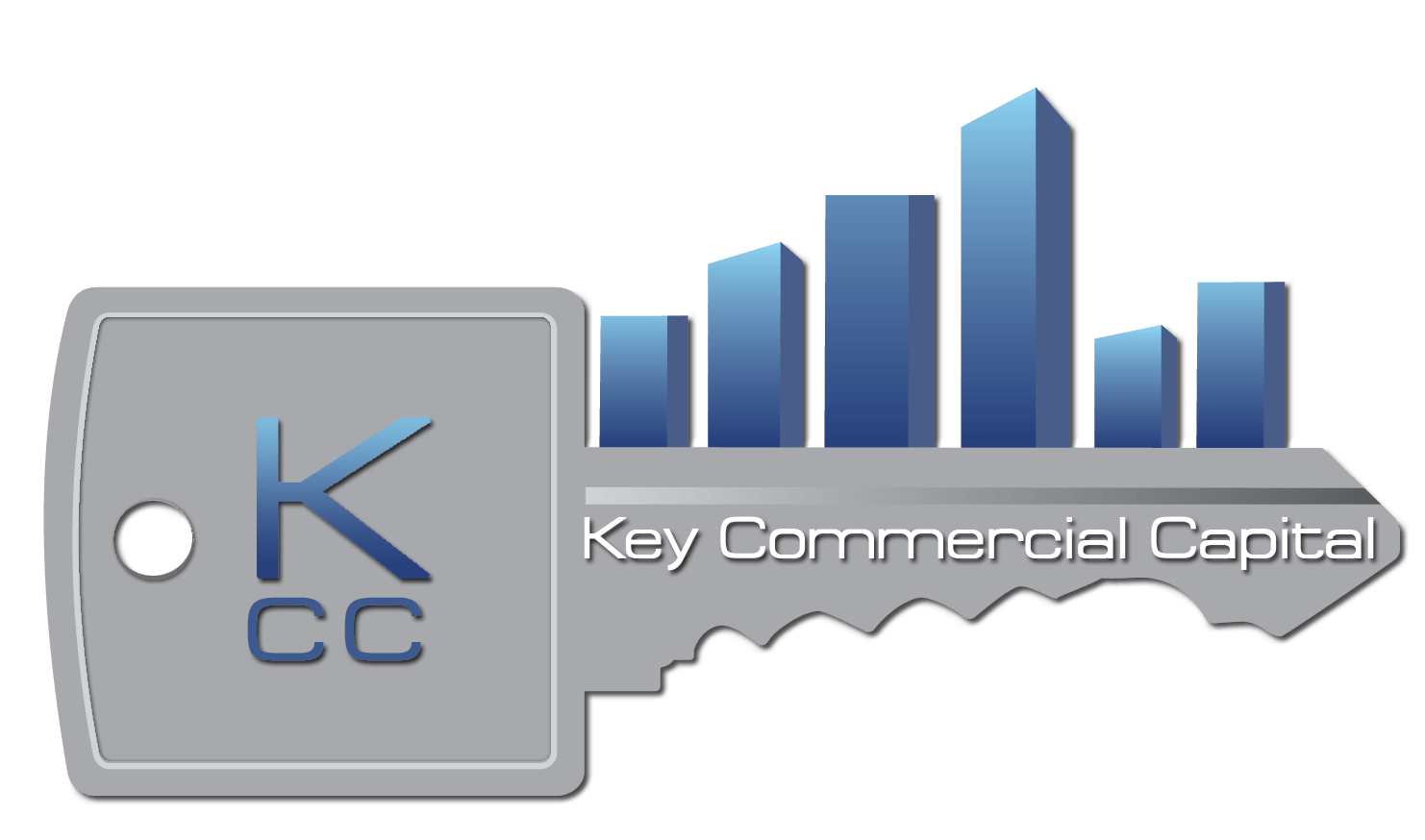1. Paying a loan brokerage firm too much money upfront without a loan approval in hand
 When a borrower seeks help from a business loan broker or brokerage firm often times the firm requires a deposit upfront before they will begin working on the file. It is wise to find out details and get an agreement in writing about what the fee covers and what happens if a loan is not approved. When work is performed it is right that compensation be paid for that work. Industry insight, experience and knowledge about a variety of different lenders and the qualification requirements of each are valuable assets that a business loan broker offers to a borrower. It is risky for a loan brokerage firm to “give away” too much information and assistance without obtaining a deposit. The value of information shared can save an enormous amount of time and trouble.
When a borrower seeks help from a business loan broker or brokerage firm often times the firm requires a deposit upfront before they will begin working on the file. It is wise to find out details and get an agreement in writing about what the fee covers and what happens if a loan is not approved. When work is performed it is right that compensation be paid for that work. Industry insight, experience and knowledge about a variety of different lenders and the qualification requirements of each are valuable assets that a business loan broker offers to a borrower. It is risky for a loan brokerage firm to “give away” too much information and assistance without obtaining a deposit. The value of information shared can save an enormous amount of time and trouble.
Fee Policies
Each firm has a different policy. Beware of those who charge the entire fee upfront without an actual loan approval. At Key Commercial Capital we take it a step further. It is our policy to wait until an official underwriting approval is obtained BEFORE any fees are charged to the client. This is a bit risky on our part because often times we provide a lot of assistance and spend a hefty amount of time with a borrower who might change his or her mind about something. Rather than collect too high a fee upfront and then have to be concerned with returning a portion of the fees we just wait until the underwriting approval is in hand prior to invoicing the client for our work. Additionally, when comparing our fees to other firms, borrowers will find that ours are quite a bit lower than others. We hope each client feels that we go the extra mile and earn every dollar of the fair fee we charge once their official business loan approval is in hand.
2. Assuming that a “pre-approval” on a loan is a “done deal” and paying a deposit or the entire franchise fee to a franchisor BEFORE getting an underwriting approval (commitment letter) from a lender.
 A pre-approval is not an official approval. It simply means that the file looks like it is credit worthy to get an approval. We have seen borrowers make the mistake of assuming all is well and decide to wait on the formal underwriting process until after they pay a goodwill deposit or a franchise fee. This is risky business. It is a possibility that deposits and franchise fees are non-refundable. We encourage every borrower to be certain that their loan is fully underwritten and they have a commitment letter from a lender before proceeding with signing legal documents or paying any fees or deposits to a franchise or seller of a business. Once fees are paid it is difficult to go backwards to undo what was started.
A pre-approval is not an official approval. It simply means that the file looks like it is credit worthy to get an approval. We have seen borrowers make the mistake of assuming all is well and decide to wait on the formal underwriting process until after they pay a goodwill deposit or a franchise fee. This is risky business. It is a possibility that deposits and franchise fees are non-refundable. We encourage every borrower to be certain that their loan is fully underwritten and they have a commitment letter from a lender before proceeding with signing legal documents or paying any fees or deposits to a franchise or seller of a business. Once fees are paid it is difficult to go backwards to undo what was started.
It is wise to get a commitment letter from a lender before making promises, paying fees or signing legal documents. It is surprising to see how often this happens and how difficult and stressful it is on individuals and their families. The correct order of things is to secure financing first before moving forward on any business project that requires a large amount of funds. Key Commercial Capital will work hard to find a lender to get your loan underwriting approved with a commitment letter in your hands before you make commitments of your own.
3. Signing a lease before securing financing
 Once a lease is signed the business owner is responsible for payment. Many times leases for business locations are for multiple years. We have seen borrowers assume there will be no problem getting a loan approval and sign a lease, only to find out that they do not qualify for financing for some reason. Credit report problems, debt to income ratios being too high and a number of other factors could lead to being declined for financing. It is wise to wait on signing a lease until financing is secured.
Once a lease is signed the business owner is responsible for payment. Many times leases for business locations are for multiple years. We have seen borrowers assume there will be no problem getting a loan approval and sign a lease, only to find out that they do not qualify for financing for some reason. Credit report problems, debt to income ratios being too high and a number of other factors could lead to being declined for financing. It is wise to wait on signing a lease until financing is secured.
SBA Landlord Waivers and Lease Terms
It is also important to note that the SBA has certain requirements in place with respect to landlords and lease agreements. A landlord consent form can be required and the lease should be written in such a way that it allows the business owner to be able to renew the lease for the term of the loan. If the loan term is 10 years, the lease agreement should provide the option to renew the lease (if the business would like to stay) for the term of the loan. This does not mean that the business must stay in the location. It means that the landlord must offer the lease extension to the business if they WANT to stay. It could be detrimental to a business if a landlord forces the business to move and possibly create a situation where it has no place to operate. This scenario is one that the SBA and the lender do not want. If a business cannot operate and generate revenue it may have difficulty making its loan payments. For this reason the SBA and the lender will require that the landlord allow the business to stay for the term of the loan.
If the lease is signed too early it is possible that the landlord may refuse to comply with the SBA requirements. This puts the lender and the borrower in a bad situation. Sometimes requirements can be waived, but other times they cannot be waived. It is best not to risk having issues during closing and to wait on signing lease agreements until requirements are fully understood and financing is secured. Your representative at Key Commercial Capital will be able to answer specific questions about SBA requirements surrounding landlord waivers, consent forms and leases. We are prepared to guide you through the requirements to make the closing process as smooth as possible.
4. Making large purchases using personal credit and changing the debt to income ratio on a file before loan closing
 The closing process for some SBA loans can be quick (1 to 6 weeks). Other files take time because a location must be found, construction and build-out must be done and processing times for certain licenses in some States can be lengthy. When the time from approval to closing is long, it is wise for borrowers to keep their personal credit clean and their debt and income at a similar level to where it was when they received the underwriting approval or commitment letter from the lender. Some lenders are required to pull credit reports a second time right before closing. If the reports come back vastly different from what was shown at the time of file approval, there could be a problem. It is also problematic if the income level of the household decreases. If a borrower can no longer show that personal obligations are being met and the new business loan payment can be covered, the file could be declined at closing.
The closing process for some SBA loans can be quick (1 to 6 weeks). Other files take time because a location must be found, construction and build-out must be done and processing times for certain licenses in some States can be lengthy. When the time from approval to closing is long, it is wise for borrowers to keep their personal credit clean and their debt and income at a similar level to where it was when they received the underwriting approval or commitment letter from the lender. Some lenders are required to pull credit reports a second time right before closing. If the reports come back vastly different from what was shown at the time of file approval, there could be a problem. It is also problematic if the income level of the household decreases. If a borrower can no longer show that personal obligations are being met and the new business loan payment can be covered, the file could be declined at closing.
Good lenders who have provided a commitment letter usually are indeed committed to the loan. Minor changes normally do not create problems when it is time for final closing. Good underwriters usually provide a cushion for unexpected changes that might occur during the time between approval and funding. However, if major changes occur the lender may be forced to pull back and refuse to fund the loan.
If there is question about changing anything with respect to income or borrowing funds to make large personal or business purchases it is best to ask before doing. Your representative at Key Commercial Capital will always be available to answer questions about situations that might compromise a loan in process. It is a priority for us to be there to help guide you through the closing process. We do not simply assist borrowers to get an approval and then disappear. We are committed to your file from start to finish.
5. Using personal funds and/or personal credit for the business
Although the individual obtaining an SBA loan is a guarantor of the loan, the loan will not appear on the personal credit report. Essentially the business is the borrower, which helps build the credit of the business and does not affect the personal credit of the individual guarantor. It is wise to build business credit and to keep personal finances separated from business finances. It is surprising how many people use personal credit cards and personal loans to fund a business. This can be detrimental to personal credit and can disqualify a borrower for an SBA loan. The personal debt to income ratio should be below 40% to qualify for an SBA loan. If personal credit cards are used to finance the business, they cannot be considered in a refinance. An SBA loan being utilized to refinance debt can only consider debt that is in the name of the business and not the personal name of the individual owner of the business. It is tempting to utilize personal credit cards when cash flow gets tight or when the business is just starting out. Business owners may not know about special financing options that are available, or they might think their file would not qualify for business financing. Key Commercial Capital would be happy to discuss the options that are available before a business owner incurs or increases personal debt for the business.
6. Under capitalizing the entire project from the start
 Under capitalizing your business from day one is one of the worst things a new business owner can do. It is always better to plan ahead for unexpected expenses. It is important to consider taking out a slightly larger loan to have extra cash on hand or working capital. SBA loans do not have a pre-payment penalty. If a borrower can qualify it is usually a good idea to get a little larger loan than what initial need projections indicate. If the business is doing well in its first year or two the extra funds can always be paid back into the principal of the loan (without a penalty or fee) to save on interest. It is better to have extra cash in the business account to help cover unexpected expenses or to handle growth. The need for increased inventory or salaries for additional employees might create a tight situation for cash flow. Planning ahead to have access to extra funds is a smart move. We have seen several borrowers come back for a second SBA loan. This scenario of going through the process for a second loan could easily be avoided if a larger loan is taken out in the first round. Sometimes the borrower gets into a situation where they no longer qualify for a second loan. It is tempting to use personal funds or personal credit cards when a new business is struggling with cash flow issues. Personal debt can cause an issue with getting a second loan approved. Key Commercial Capital can help you understand the maximum loan amount your file will qualify for. This will help you to make an informed decision about possibly setting aside extra funds that can provide a cushion for business growth and unexpected expenses.
Under capitalizing your business from day one is one of the worst things a new business owner can do. It is always better to plan ahead for unexpected expenses. It is important to consider taking out a slightly larger loan to have extra cash on hand or working capital. SBA loans do not have a pre-payment penalty. If a borrower can qualify it is usually a good idea to get a little larger loan than what initial need projections indicate. If the business is doing well in its first year or two the extra funds can always be paid back into the principal of the loan (without a penalty or fee) to save on interest. It is better to have extra cash in the business account to help cover unexpected expenses or to handle growth. The need for increased inventory or salaries for additional employees might create a tight situation for cash flow. Planning ahead to have access to extra funds is a smart move. We have seen several borrowers come back for a second SBA loan. This scenario of going through the process for a second loan could easily be avoided if a larger loan is taken out in the first round. Sometimes the borrower gets into a situation where they no longer qualify for a second loan. It is tempting to use personal funds or personal credit cards when a new business is struggling with cash flow issues. Personal debt can cause an issue with getting a second loan approved. Key Commercial Capital can help you understand the maximum loan amount your file will qualify for. This will help you to make an informed decision about possibly setting aside extra funds that can provide a cushion for business growth and unexpected expenses.
Building business credit
Additionally, once the new business has been generating a good amount of revenue for six months to one year it is a good idea to set up a business line of credit. Lines of credit are a way of supplementing cash flow for short periods of time. As the line of credit is used and paid back the lender will usually increase the line. Lines of credit should only be used for short periods of time to avoid compounding interest. If a business owner does not foresee being able to pay back the line of credit in 1 to 3 months it might be a good idea to consider a second SBA loan. If a borrower qualifies, a second SBA loan is acceptable if the borrower waits 90 days in between the closing of one SBA loan and the application for another one. Key Commercial Capital can help your business get set up for a line of credit and can advise you on the options and qualification requirements for additional loans. We are happy to present information about all of the options so that you can make a well-informed decision.
7. Paying extra to secure additional territories to be developed later (after location 1) and expecting to get equity credit (credit toward down-payment) for funds used toward this expenditure
 We have seen borrowers who have paid for multiple locations stuck without being able to qualify for financing for the first location simply because they used too much of their liquid funds to pay for a regional development contract. There is no point to pay for the rights to open 3 or 4 locations when financing for the first location is unobtainable. Liquidity (cash on hand in accounts) is very important when underwriters consider your loan application. It helps mitigate the risks in a file when extra cash is available in accounts. This is considered “reserves” or “post loan liquidity”. Once the loan closes, underwriters like to know that plenty of extra cash is available to make the loan payment while the business is ramping up. If the extra liquidity is used to purchase development rights for multiple locations the borrower might just disqualify his or her own file for the necessary financing to get the first location open.
We have seen borrowers who have paid for multiple locations stuck without being able to qualify for financing for the first location simply because they used too much of their liquid funds to pay for a regional development contract. There is no point to pay for the rights to open 3 or 4 locations when financing for the first location is unobtainable. Liquidity (cash on hand in accounts) is very important when underwriters consider your loan application. It helps mitigate the risks in a file when extra cash is available in accounts. This is considered “reserves” or “post loan liquidity”. Once the loan closes, underwriters like to know that plenty of extra cash is available to make the loan payment while the business is ramping up. If the extra liquidity is used to purchase development rights for multiple locations the borrower might just disqualify his or her own file for the necessary financing to get the first location open.
Equity credit for the franchise fee
Some franchises require a 3 pack or 5 pack to be purchased with the initial franchise fee. Borrowers need to realize that the funds paid toward extra locations will not ALL count toward the required equity injection for location 1. If for example the franchise fee for location one is $30,000 and extra development rights for 3 locations cost another $30,000. The borrower will only get equity credit for the franchise fee and the portion of the extra fee for location 1 ($10,000 in this case). The remaining $20,000 will be usable as equity credit in the amount of $10,000 for location 2 and the remaining $10,000 for location 3. Unless the business is opening 2 or 3 locations all at ONE time, the equity credit is split up across the time is takes to open each location.
Deal structuring
It would be wise to discuss options and to plan ahead for the qualification requirements that will be necessary BEFORE using funds to purchase the rights to extra territories. Key Commercial Capital will be happy to work with borrowers to help plan accordingly. If the fee for development rights of extra territories or locations will be detrimental to a loan, it would be a good idea to negotiate something with the franchisor about paying for the rights to open extra locations after the loan for location one is closed and funded. This may or may not be allowed by the franchise. It is best to have these discussions ahead of time to avoid disappointment, delays and frustration.

